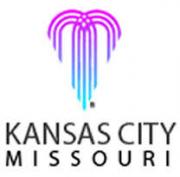Cooperative procurement plays a key role in Kansas City, Mo.’s procurement strategy
Kansas City, Mo., (KC) expects to see more cooperative procurements in its future, says Reneé Medlin, Procurement Manager in the city’s Procurement Services Division/General Services Department. The division won the prestigious Achievement of Excellence in Procurement Award from the National Procurement Institute in 2011 and 2012. Medlin’s background includes work as a financial system analyst for the city and a stint as a senior budget analyst for the University of Missouri at Kansas City. She serves on U.S. Communities’ Advisory Board. 
Lean staffing and heavy workloads will continue to drive public sector buys through co-ops, Medlin tells GPN. “Governmental resources are holding steady at best (still decreasing in some cases), so cooperative procurement will continue to be a vital part of our processes,” Medlin concludes: “We need the ability to use these [cooperative] contracts to supplement our staffs.”
Medlin shared with GPN some of the cooperative procurement tools that her agency uses, as well as the policies the agency follows.
As a response to the growing number of co-ops that offer goods and services to governments, KC’s procurement division executives developed a checklist, called the “Cooperative Agreement Checklist.” Procurement personnel use it as a guide to determine when it could be more appropriate to use a cooperative contract and forego the solicitation process.
The checklist includes questions such as:
—Does the solicitation, award and contract comply with all city requirements as defined in the City Code of Ordinances Section 3-1, 3-3, 3-41, and 3-73? Those sections cover the following and other requirements: Proof of advertising, solicitation document and contract.
—Do the terms, conditions and scope of work/specifications meet the city’s needs?
—Is the city’s “piggy-back” agreement necessary for this contract?
Medlin says the checklist helps procurement personnel thoroughly examine cooperative agreements, and that the investigation process is important. “Complete due diligence is expected in all cases to properly ensure it is indeed in the city’s best interest. It is imperative that Procurement conducts the appropriate research, collects all documentation necessary for the contract file and follows the city’s contracting process.”
KC Procurement is mindful of the city’s local programs and requirements, Medlin says. “Governments are becoming more sensitive to the local economy and its role in it by doing business with local suppliers.” She says it is important for agency buyers to find a good balance between supporting local companies, while being prudent with taxpayer dollars.
Medlin believes cooperative purchasing programs are aware that local governments need to support local businesses. “More cooperative contracts allow for agencies to execute a separate contract with the supplier to include additional requirements that are agency-specific, such as M/WBE participation as subcontractors.”
She says this flexibility gives a boost to KC and area businesses: “The city benefits by receiving the best overall government pricing, while encouraging inclusion of our certified minority and woman-owned business enterprises.”
KC’s procurement team uses a variety of tools to complete due diligence on cooperative pacts that the city may consider using. Staffers consult the cooperatives’ websites to obtain documentation when researching contracts. They also reach out to the lead agency on cooperative agreements to complete the division’s files on specific contracts.
Procurement staffers in KC use the Procuresource website when researching potential cooperative buys. Medlin says this site often has needed documents covering some cooperatives, including HGACBuy and U.S. Communities.
Medlin says division staffers follow a number of practices when working with cooperative contracts, such as:
—Provide feedback to the lead agency on the supplier’s performance,
—Double-check to make sure invoice pricing matches contract prices, and
—Resist the tendency to bargain against the contract’s fixed pricing.
“We do that with the contracts we utilize, as we feel it only makes the contracts better,” Medlin explains. “The better the contract compliance is, the stronger cooperative procurement will be.”
Medlin says agencies need to actively offer compliance feedback in the procurement process. That feedback, she says, protects the integrity of cooperative procurement. Otherwise, she believes that the process might be challenged. “I think we’ve come too far to let that happen, and I encourage everyone to become active one way or another.”
Editor’s note: In addition to the KC Procurement checklist mentioned above, readers may want to consult the NIGP: The Institute for Public Procurement’s Global Best Practices website. The site has useful procurement resources, including a “Use of Cooperative Contracts for Public Procurement Guide” that has checklists for administering cooperative contracts.
_____________
To get connected and stay up-to-date with similar content from American City & County:
Like us on Facebook
Follow us on Twitter
Watch us on Youtube





















Using cooperative procurement
Using cooperative procurement as a tool in procurement is insightful and drives savings while leveraging staff resources. Another free “check-list” that might be helpful can be found on the NCPP website under the “Education” link – a Road Map to a Strategic Cooperative Procurement Strategy.